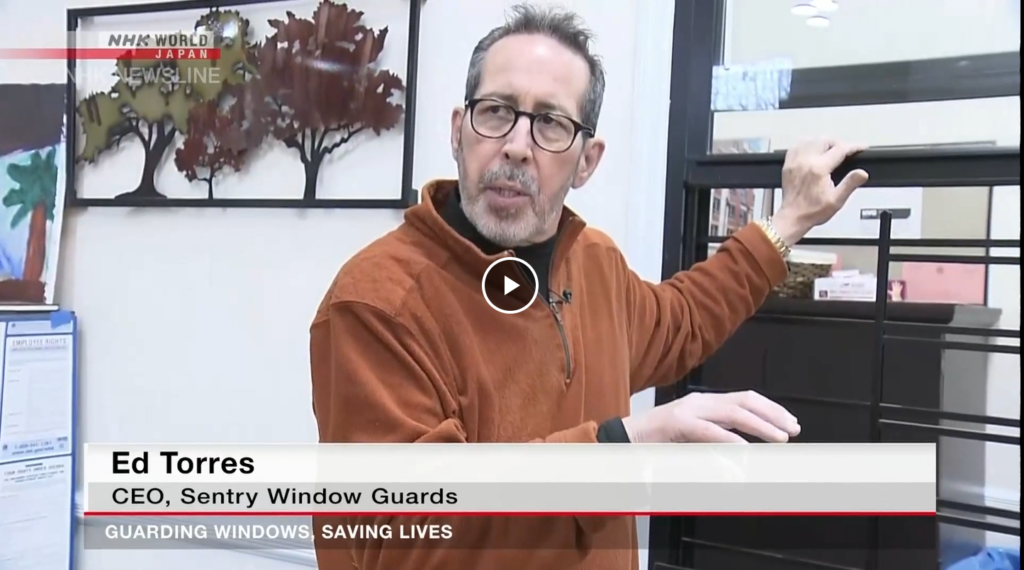The National Safety Council’s Window Safety Task Force marks National Window Safety Week annually during the first full week of April. This year the event will be held April 1-7, 2024. The objectives of this week are to educate families on the vital role windows play in fire escapes and other emergencies, as well as to prevent accidental window falls. Your family’s safety is paramount to Sentry Window Guards! We hope you and your family will take some time to review this window safety checklist to ensure year-round protection.
Preventing Window Falls
- Never leave young children unsupervised near open windows.
- Keep windows closed and locked when not in use.
- Position children’s play areas away from windows.
- Avoid placing furniture near windows to deter children from climbing.
- Do not rely solely on insect screens to prevent falls, as they cannot support a child’s weight.
- Whenever possible, open windows from the top rather than the bottom.
- Properly installed window guards are essential for preventing window falls. Consider installing window stops to enjoy fresh air while ensuring safety.
Creating Emergency Escape Routes
- Develop and practice an emergency escape plan with your family at least twice a year, once during daylight and once at night.
- Identify at least two escape routes from every room.
- Ensure that at least one window in each bedroom meets escape and rescue standards.
- Teach older children how to safely open windows in emergency situations.
- Verify that windows are not nailed or painted shut.
- Remove air conditioners from windows that may be needed for escape.
- Install emergency escape ladders in upper-story windows where necessary and educate all family members on their use.
- Designate a safe meeting point outside your home.
At Sentry Window Guards, we believe that window safety goes beyond just preventing falls and aiding in emergency escapes; it also plays a crucial role in enhancing home security and energy efficiency. Making sure that your windows are properly secured with locks and alarms, homeowners can deter burglars and intruders, providing peace of mind for their families. Additionally, investing in energy-efficient windows helps to regulate indoor temperatures, reduce utility bills, and minimize environmental impact. By sealing gaps, upgrading to double or triple-pane windows, and installing insulated frames, homeowners can create a more comfortable and sustainable living environment while prioritizing safety.
Additionally, staying up to date about advancements in window safety technology can empower homeowners to make the best decisions about protecting their homes and loved ones. From smart window sensors that detect unusual activity to shatter-resistant glass that withstands extreme weather conditions, there are various innovative solutions available on the market.
If you have questions about your New York home, please feel free to give us a call so that we may tailor effective solutions for your specific needs and preferences.
At Sentry Window Guards, our mission is to protect children by preventing window fall accidents. Here’s a testimonial from a satisfied customer:
“Great service! As a new landlord, window guards was not an area I had any experience in but the team at Sentry Windows made it easy for me to make the right choices for my windows. They’re also a nice size that fit in the back track of your window seamlessly, opposed to the bulky guards from the hardware store. Thank you!”
-Tameka Edwards
“Really happy with my recently purchased window guards. The associates there were also nice enough to be flexible with me and my work schedule to allow me to pick up after their regular work hours.”
-Ibrahime Balde
For further information on our window guard products and our expertise in complying with NYC safety regulations, contact us today.









